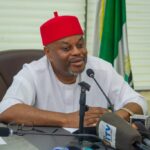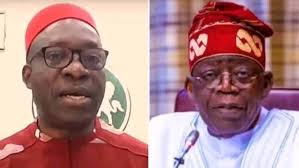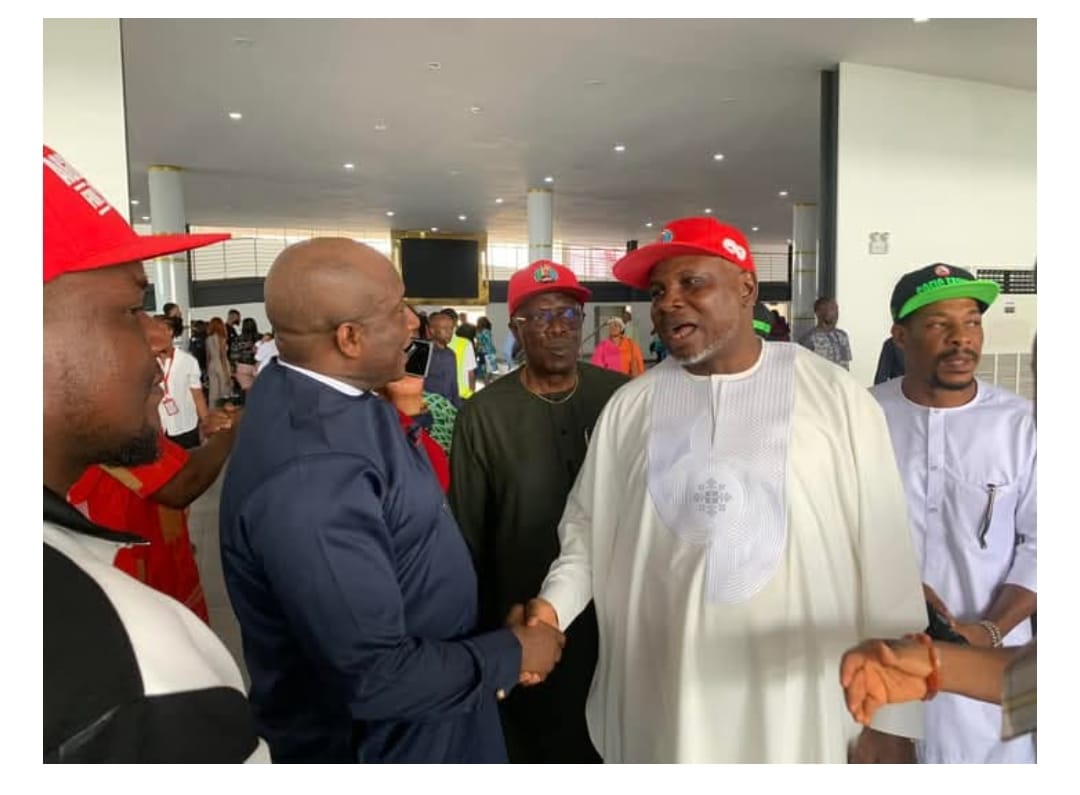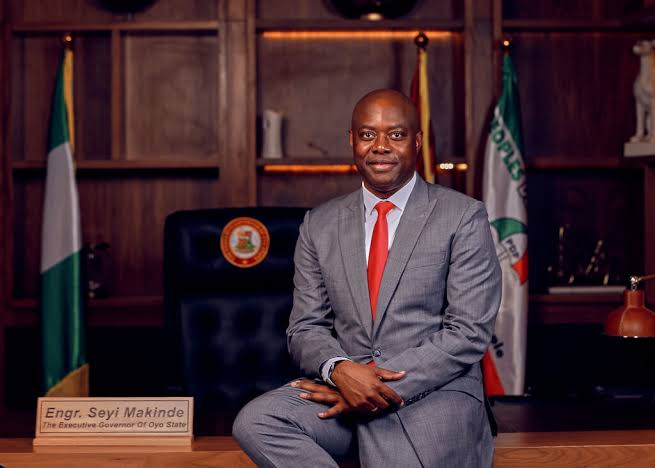APC controlled states in the North seriously fractured
• Internal wrangling is perfectly normal – FFK
• President Buhari’s nonchalant posture unhelpful – Babajide
With less than 14 months to the country’s general elections, the ruling party at the centre and the largest party in Nigeria are currently on the verge of implosion, which could cost them the presidency in 2023.
Investigations have shown that the All Progressives Congress, APC, is in a troubled state with its hierarchy hopelessly divided as to who to present as the Presidential flag bearer at the centre.
Besides the battle between the South West, South East and parts of the North on which region should produce the Presidential flag bearer, the APC is seriously fractured in over 10 states, mainly in the North.
Considering the fact that the North is the bastion of the APC, critics are wondering if the party won’t crack under the weight of internal wrangling.
State by state, the view of the crisis in some of the North is x-rayed.
The Crisis in Kebbi
For more than a year now, APC in the Land of Equal Opportunities has been racked by an internal crisis that has led to the emergence of two factions in the state.
Both factions have also opened parallel secretariats in Birnin Kebbi and both of the groups have laid claim to being the genuine APC in the state.
Sani Kangiwa chairs one of the APC factions in the state, and he and his group are loyal to Senator Aliero. Kangiwa was removed by loyalists of the incumbent governor, Bagudu, during the congress.
While the Bagudu group is headed by Abubakar Kana Zuru as chairman,
The disagreements between Senator Adamu Aliero, the former governor of the state, and his former protégé, the incumbent governor, Atiku Bagudu, are at the heart of the crisis.
Investigations by revealed that Governor Bagudu wanted the incumbent Attorney General of the Federation and Minister of Justice, Abubukar Malami, to be the next Governor.
Bagudu’s moves did not sit well with top APC politicians like his estranged mentor, Senator Aliero, who had warned that the party would suffer severely if the governor was allowed to have his way.
The former governor of the state and his camp alleged that Governor Bagudu had used the last Congress in the state to remove those that would likely oppose his chosen candidate and replace them with pliant party officials.
There will be severe consequences if the APC in Kebbi State fails to be fair to all. During the last congress of the party, some members were selfishly removed as leaders, while others were imposed to take over their positions. We will not allow that to happen,” he added.
Sources close to the power brokers in the state also pointed out that Aliero also has a candidate for the governorship slot—Yahaya Abdullahi, a popular politician, is said to be the choice of the two-time governor.
Despite national efforts to heal the schism, the two factions have dug in and are ready to outplay each other in 2023.
Kaduna State Seem Quiet But…
The subtle faceoff between the camps of Senator Uba Sani and the Speaker of the House of Assembly in Kaduna state, Yusuf Zailani, came to the fore in early 2021. Nonetheless, analysts postulated that the faceoff was the result of the 2023 ambitions of the two top APC stalwarts in the state.
The central senatorial district, which Uba Sani represents, comprises of the Birnin Gwari, Chikun, Giwa, Igabi, Kaduna North, Kaduna South, and Kajuru local government areas. Incidentally, Zailani is also from that zone, though he was elected specifically from the Igabi state constituency.
In early 2021, the Speaker was alleged to have criticised the Senator for his poor performance while speaking to his constituents. The criticism also elicited reactions from the Senator’s camp, which subsequently countered.
As the face-off continued, a national daily insinuated that the lawmaker may have lost favour with his political godfather, Governor Nasir Ahmad El Rufai. The paper went on to note that Speaker Zailani may also be interested in vying for the seat of Sani, a situation that may prompt the Senator to seek solace with the People’s Democratic Party, PDP.
Though the fences appeared to have been amended, and Zailani sent the Senator a heartfelt birthday message in early January of this year, political pundits speculated that the feud had not been heard of in a long time.
Mutawalle, Marafa, Yari’s Endless Fights
No APC-controlled states are the divisions as intense and entrenched as in the state currently governed by Muhammad Bello Mutawalle.
Ever since Mutawalle moved to the APC, it has been one crisis after another within the party. The governor had faced so many obstacles to his return to the APC, including from the former governor of the state, Abdulaziz Yari, and Senator Kabiru Marafa.
In June of 2021, shortly after Matawalle defected to the APC, he was declared the leader of the party in Zamfara State by the Chairman of the caretaker committee, Governor Mai Mala Buni. Critical stakeholders in the APC, notably Marafa and Yari, openly disagreed with the designation.
Marafa, when rejecting the Governor as the leader of the party, accused the national leadership of the party of not sticking to their arrangement.
“What we agreed on is what we would give in the party and what we would take in government.”
But when we went there, there was a controversy, and we found that there was a plan. Some said the party was to be disbanded.
The party cannot be destroyed because no one has the power to destroy it. ”
Senator Marafa went on to lampoon the appointment of Governor Matawalle as the leader of the APC in Zamfara as a scam that they would never accept.
He said some APC leaders sitting in Abuja cannot just appoint leaders in Zamfara State, adding that Mr. Matawalle’s entry into the party will escalate the party crisis.
The crisis in the state culminated in the holding of parallel congresses by Governor Mutawalle and the Marafa/Yari factions in November of 2021.
Not done with holding different party congresses, members of the different factions have turned to violence and counter-violence to buttress their claims to legitimacy.
It could be recalled that it was similar actions by the same individuals that culminated in court actions which led to the APC being denied all the elective posts in Zamfara in 2019.
The feud between Ganduje and Shekharau splinters Kano APC
The APC in Nigeria’s largest state is in limbo as Governor Abdullahi Ganduje and Senator Ibrahim Shekarau battle for the future of the party. The intensity generated by the rivalry between these two top APC leaders has destroyed the fabric of the ruling party in the state.
The rivalry between the two last December also led to parallel congresses championed by factions loyal to the two political heavyweights. The casus belli of the conflict between Shekarau and Ganduje can be traced to the aftermath of 2019 elections in the state.
Even though the APC won the election, it was by a razor-thin margin. But without the help of Ibrahim Shekarau, the APC would have been disgraced. However, on winning reelection, the Governor became cold towards the Senator of Kano Central Senatorial District. Similarly, the senator’s allies were said to be given the same cool treatment by government officials.
Another source of contention between the two was a squabble in the National Assembly between the Governor and the Federal Law Maker representing Dawakin Tofa, of Rimin Gado Federal Constituency. Many are of the opinion that Ganduje is bent on replacing the lawmaker with his own son.
Similarly, Senator Barau Jibril, a loyalist of Shekarau, is said to have an eye on the governorship ticket of Kano come 2023. Nonetheless, Ganduje is said to favour one of his commissioners, Murtala Garo Sule.
The last straw that broke the camel’s back was the congresses that produced different chairmen for the same party in the same state.
Just like in Kebbi and Zamfara, the rift between two political gladiators in Gombe had almost splintered the party till Governor Mala Buni stepped in to settle the rift.
Governor Muhammad Inuwa Yahaya, who is currently the governor, was embroiled in a feud with Senator Muhammad Danjuma Goje, a former governor as well.
According to the APC publicity secretary in that state, Moses Kyari, the former governor did not want to accept that Governor Yahaya was the leader of the party, hence the crisis. A similar scenario has played out in Kogi, where the governor is accused of muscling dissent within the party.
Why is the crisis still present in APC-controlled states?
One of the hosts of Journalists Hangout, Babajide Kolade Otitoju, believes the APC has grown so big over the years that there must be conflicts of interest.
Whether you like it or not, the party has become the largest party in the country, so people are bound to argue and differ on several points.
He also blamed the sitting governors for muscling and sidelining stakeholders like senators, members of the House of Representatives, and the House of Assembly.
As a result, you have party members forming parallel party structures within the APC. If this trend is not curtailed, what happened in Zamfara and Rivers states may happen in many more and the winner would be the PDP.
The ace Journalists also blamed the nonchalant attitude of President Buhari, who, as the leader of the party, refused to intervene in many of these crises.
According to him, the President’s apathy toward internal party squabbles will not help the situation.
Ayo Gbadegesin, another journalist and a public affairs analyst, totally agreed with Jide that the President’s policy of no interference in internal party crises leaves much to be desired, adding that either the President sits up or watches his party disintegrates,
However, former Aviation Minsiter, Chief Femi Fani Kayode, believes that it is perfectly normal for parties to experience internal crises.
“What matters is for the party to resolve its differences and come out strong by 2023 to win the general elections.”
If you take a look at PDP, it is experiencing similar symptoms to APC, so it is just a normal thing, he added.
Rex Olawoye, an APC chieftain in Kwara state, believes that the governors and officials of the party must follow its constitution and respect the resolution of its National Executive Committee (NEC) in resolving its protracted internal crisis in the state.
Even as top party officials at the national level battle to save the party from imploding, many are asking if they have time on their hands.










